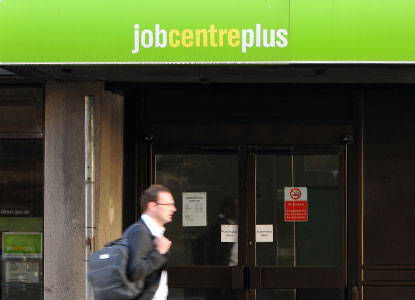By Richard Johnstone | 9 April 2014
Uncertainty over when the computer systems needed to implement the government’s flagship Universal Credit benefit reform programme will be ready mean the implementation deadline could be missed, MPs warned today.

The work and pensions select committee said the rollout of the reform, which has been delayed due to problems with the IT system, was happening at ‘a snail’s pace’.
The controversial plan to merge six benefits into one payment by 2017 for all recipients has been criticised for being overly ambitious and lacking a comprehensive implementation plan. Ministers originally set a target for one million people to have been switched to Universal Credit by the end of the year.
However, following yesterday’s extension to Shotton in Wales, only ten places are currently offering the combined benefit after a decision was taken to slow down implementation, but stick with the overall 2017 target date.
Committee chair Dame Anne Begg highlighted the system would not be open until all new claimants across Britain until 2016, and the bulk of existing claimants will not move over to UC until 2017, putting the target at risk.
‘Only 4,280 people were claiming Universal Credit by December 2013 and the majority of these claims were of the simplest nature,’ she added.
‘By comparison, in the same month, 1.22 million people were claiming Jobseekers’ Allowance. This demonstrates the scale of the challenge still facing the government in trying to implement Universal Credit by 2017.
‘Given the excruciatingly slow pace of rollout to date, it is hard to see how the most recent implementation timetable can be met.’
The decision by the department to resolve the IT problems by concurrently developing a new system alongside that already being used in the pilot sites could cost £32m up to November 2014, MPs said.
The Universal Credit implementation: monitoring DWP's performance in 2012/13 report called on the government to provide more detail on the total costs of the new system, as well as when it will be ready to test on the first claimants and when it will be fully implemented.
The current ‘twin track’ development approach also means money is being spent on the system currently being used in the pilot areas may not be best value for taxpayers, Begg said,
‘The money wasted on Universal Credit so far – £40m on IT software that now has no use and £90m on software with a useful life of only five years – is a matter of deep regret,’ Begg said.
‘It is vital that DWP learns the lessons of past mistakes.
‘At the same time as developing the end-state solution, the government intends to spend £37m-£58m on further developing the existing IT system. Given the small number of people currently claiming Universal Credit, the government should consider whether it would be a better use of taxpayers’ money to abandon further development of the existing system and focus solely on the end-state solution,’ she added.
Responding to the report, a DWP spokesman said: ‘Universal Credit and its IT systems are very clearly working well, with claimants receiving the new benefit and moving into work.
‘We deliberately started in a slow, controlled and safe way, which the committee itself has long recommended, so we can expand Universal Credit securely to more people. Universal Credit is on track and we will start expanding it to other Jobcentres from this summer.’





















